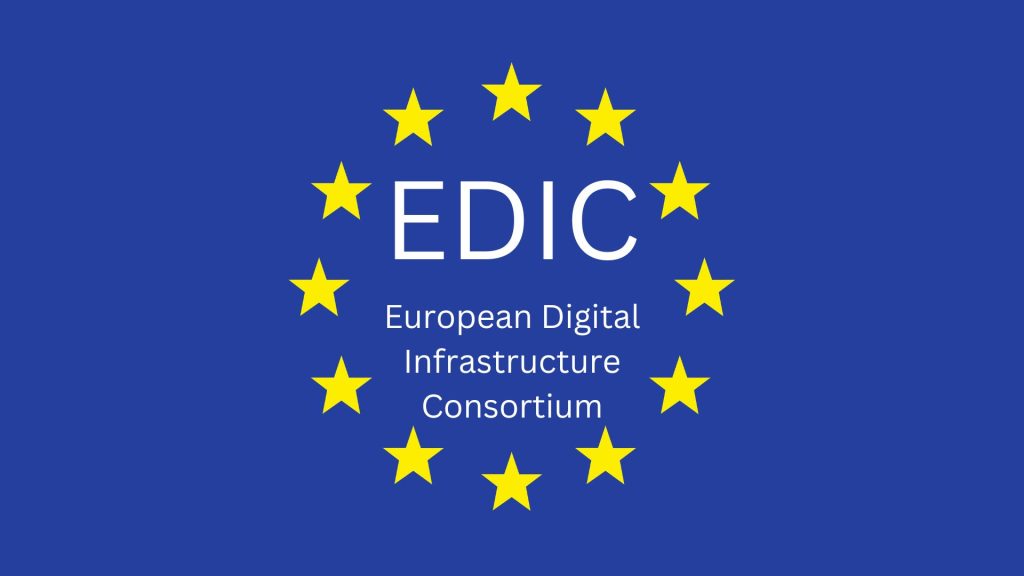What is an EDIC?
A European Digital Infrastructure Consortium (EDIC) is a type of legal structure created under the Digital Decade Policy Programme 2030 to enable EU Member States to pool resources in an efficient way to implement a joint digital infrastructure.
European Digital Infrastructure Consortia (EDICs) were introduced under the Decision (EU) 2022/2481 of the European Parliament and of the Council of 14 December 2022 establishing the Digital Decade Policy Programme 2030.
The main objective of EDICs is to provide a legal framework to invest in multi-country projects which, given their scale, cannot be set up effectively by single Member States. Therefore, EDICs facilitate coordination of funding, and enable speedy establishment and flexible implementation of multi-country projects to create incentives for Member States, while ensuring common standards and interoperability.
In addition, EDICs contribute to:
- reinforcing Europe’s technological excellence, leadership, innovation and competitiveness in critical technologies;
- addressing and solving strategic dependencies of the Union along the digital supply chains;
- increasing the availability and promoting the use of safe digital solutions;
- encouraging an inclusive and sustainable digital transformation of the economy and society;
- promoting digital skills for citizens, fostering gender-balanced participation in education and career opportunities.
Further information on EDICs is available here.
The ALT-EDIC is an EDIC dedicated to language technologies. It enables to pool resources needed to develop Large Language Models in a more efficient way than any member country could do alone.


